
Street View arrives in Google's mobile app -- iOS 6 users rejoice
Google has introduced Street View into its web app, bringing back one of the most sorely missed features lost when Apple swapped Google’s popular mapping app for its own much poorer solution in iOS 6. I’m sure you’re more than familiar with the whole sorry tale that led Apple CEO Tim Cook to issue an apology, and our own readers saying they wouldn’t be buying an iPhone 5 because of it, so I won’t dwell on the subject here.
If you followed my advice and added a shortcut to Google’s web app, you’re all set to start using Street View. Its rollout seems to be complete, so you should now have access to it, wherever you happen to live.
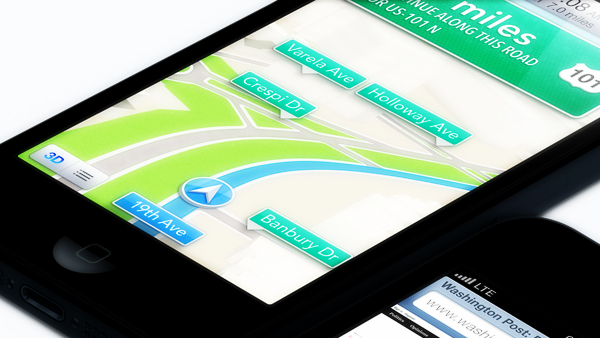
Is Apple's app Maptastic?
Apple has received pointed criticism for its own Maps application used in iOS 6, which eventually forced CEO Tim Cook to issue a public apology for delivering a less that competent alternative to Google Maps that until the latest mobile operating system iteration was the default app. Wanting to divert from the Mapplegate mishap, Onavo Team calls the app "Maptastic" -- and the pot will likely be stirred yet again...
Onavo Team, recognizing the faults of the built-in app, takes a different approach to Apple vs Google mapping by comparing a set of data that wasn't analyzed until now -- data consumption. According to the blog post, standard and satellite map views were used to provide a basis for comparison between the two, and the result is staggering. Which one came out on top?
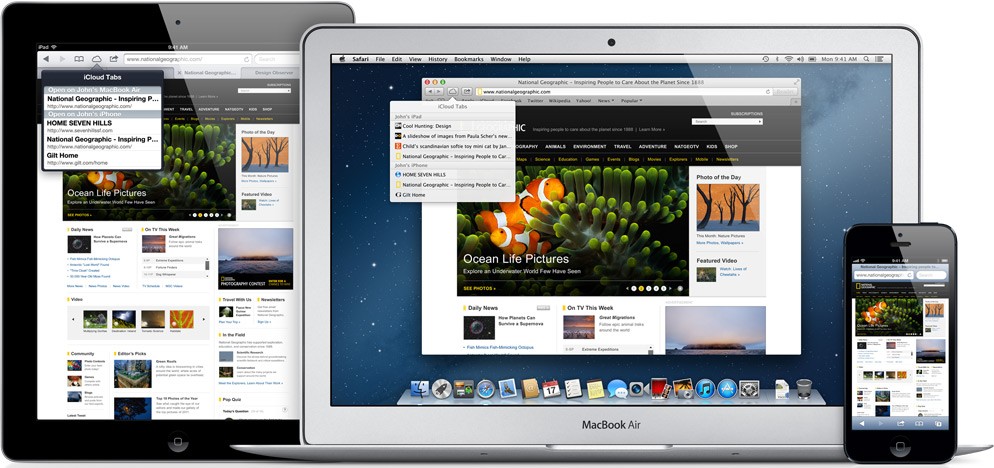
Apple maps reveals the difference between Steve Jobs and Tim Cook
I have followed Apple for over 20 years now in various ways as a consumer, an employee, a consultant and as a developer. These are my thoughts about the Maps debacle and what it says about the state of Apple overall.
The core of Apple (pun intended) is the seamless integration of hardware and software. Whereas Microsoft’s play in personal computing is purely software and companies like IBM, Dell, and HP were purely hardware, Apple wants to control the entire process. As a result, the integration is tighter, everything works better and the lines blur between the two.

Everything Everywhere launches 4G LTE on October 30
Six weeks ago, United Kingdom communications regulator Ofcom granted Everything Everywhere the right to roll out 4G LTE over its existent 1800MHz wireless spectrum. Starting October 30, the new brand along with its 4G LTE services will launch in the UK market.
The carrier will deploy 4G LTE in 10 cities, a number increasing by six before the end of the year, which equates to one-third of the UK population. Everything Everywhere also revealed a longer-term plan to reach 98 percent coverage by 2014.

Apple Maps disaster hurts iPhone 5 sales
Early results to BetaNews poll "Will iOS 6 maps keep you from buying iPhone 5?" are grim. Nearly 44 percent of respondents answer "yes", but when removing those who wouldn't buy the handset anyway, the result is much worse for Apple. Is it time to ask whether the Apple Maps offense should be a fireable offense? That one is for you in comments.
As I write, there are 1,238 responses, 43.62 percent of which are "yes". Only 29.64 percent of respondents won't change their purchasing plans because of Apple Maps. However, 22.13 percent wouldn't buy iPhone 5 anyway. When removing these respondents from the results and only looking at the pool of potential purchasers, the number saying they won't buy iPhone 5 because of iOS 6 maps is 56 percent.
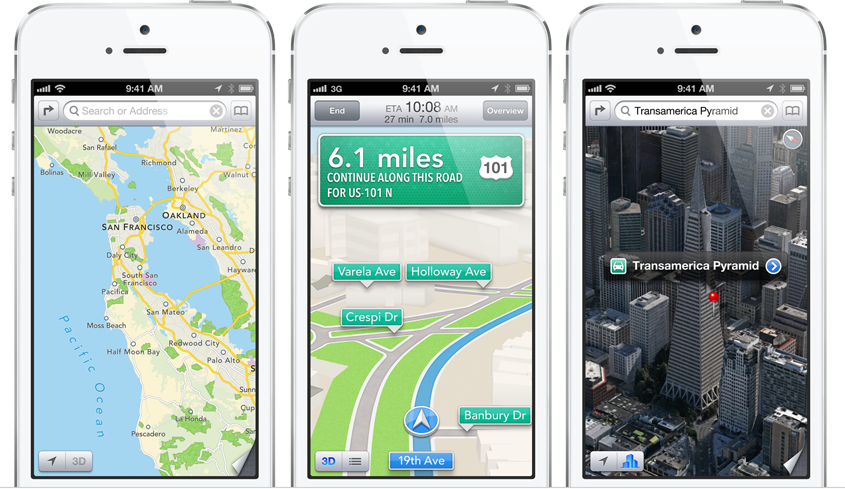
Will Apple Maps keep you from buying iPhone 5?
It's the question I should have asked nearly two weeks ago, instead of or perhaps in addition to "Will Apple Maps keep you from upgrading to iOS 6?" Surely the Cupertino, Calif.-based company must worry about such circumstance. On Friday, I asserted this concern as top reason CEO Tim Cook apologized for so-called "mapgate".
Apple has a real problem. The new maps app, which replaces the one Google provided for five years, misidentifies locations, gives wrong directions and lacks details. Considering just how popular mapping and local search are to smartphone users, the bad publicity is sure to keep somebody from buying iPhone 5. That Cook's remedy is telling iOS 6 customers to use another mapping program spotlights just how bad is the situation and how great the concern bad publicity will hurt device sales.

Sorry, Tim Cook, apology not accepted
Apple's CEO is "extremely sorry" about the "frustration" the company's homegrown maps app "has caused our customers". Sorry isn't good enough because it's directed at the wrong place. Apple replaced Google Maps in the newest version of iOS on September 19, and even Cook admits "we fell short on this commitment" to "make world-class products that deliver the best experience possible to our customers". Simply stated: Apple Maps app sucks, but he apologizes about the wrong thing.
Cook's letter of apology should go further and get to the root problem: Why Apple ditched Google Maps in the first place. Before his death, Steve Jobs told his biographer that Google's Android essentially is a stolen product, a copycat: "I'm willing to go thermonuclear war on this". Apple bombs Android competitors with patent lawsuits, risking fallout in the form of legal precedents that could hurt all tech companies. Apple's dumping Google Maps, and also YouTube, from iOS are warfare tactics -- and bigger than copying concerns when looking at local search as future ad revenue opportunity. Apple customers are collateral damage from nuclear fallout that is the new mapping app.
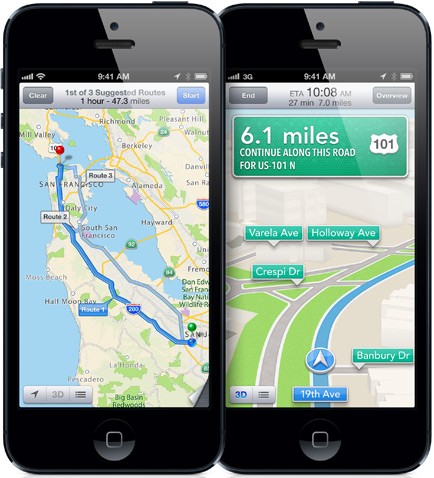
Apple apologizes for iOS 6 maps
This morning, Apple posted an apology from the CEO about iOS 6 maps, which replaced the mature Google product available in the five previous versions of the operating system. Complaints about misidentifications and misdirections flooded the web, starting with the software's release on September 19.
The letter, posted on Apple's website and signed by Tim Cook, is a rare mea culpa. Ironically, Cook's temporary remedy: Use map apps like Bing or do what colleague Wayne Williams suggested yesterday -- create a shortcut to Google Maps web app. Wayne's Apple Maps review shows exactly what's wrong with the experience he describes as a downgrade.

Get Google Maps back in iOS 6
Although there are downsides to the latest version of iOS 6, it’s mostly a welcome improvement, with of course the notable exception of the new maps feature that is a poor substitute for the Google app it replaced.
If you’re unhappy with the poor-quality cartography, incorrect place names and dodgy and potentially dangerous driving directions that seem to be the app’s stock-in-trade, don’t worry -- there’s a quick fix available that should tide you over until Google releases its sorely needed-new Maps application.
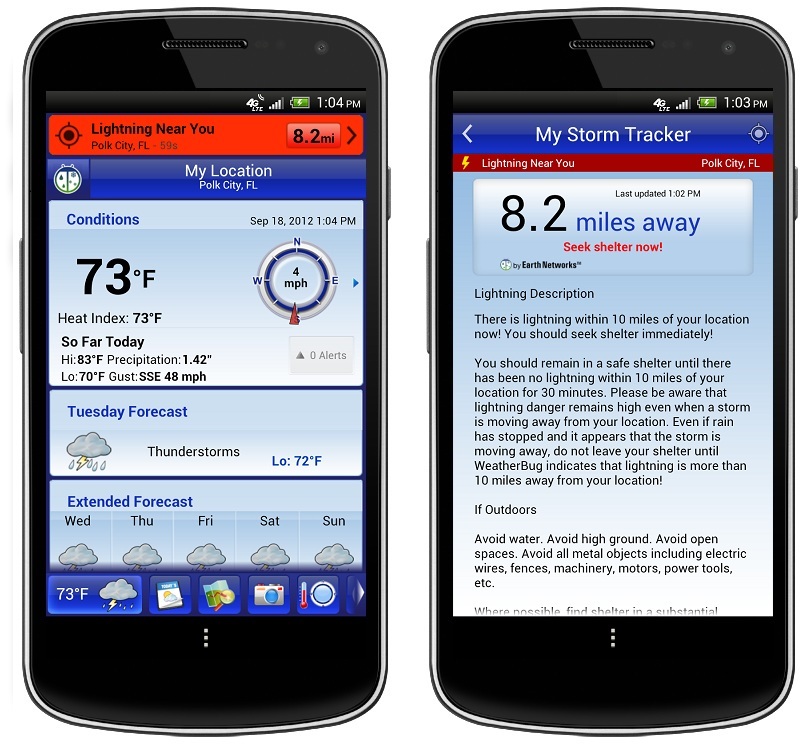
Afraid of getting hit by lightning? WeatherBug Elite for Android might help
Weather apps consistently rank behind games as the second most popular class of mobile applications (Source: Nielsen) but does your weather app tell you where you're most likely to be hit by a bolt of lightning?
WeatherBug Elite for Android, which received a major version update today, includes that very feature, called "Lightning Alerts."
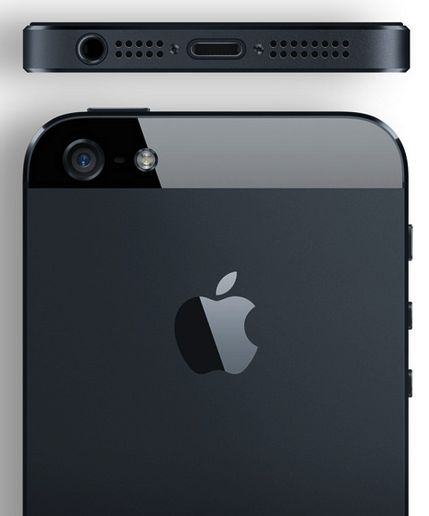
Apple claims 5 million iPhone 5 units sold during the weekend
One week after Apple announced two million iPhone 5s were pre-ordered in 24 hours, the Cupertino, California-based corporation claims even stronger iPhone 5 sales during the launch weekend.
iPhone 5 sales topped over five million units in the three days after the September 21 launch according to the press release issued by Apple on Monday.
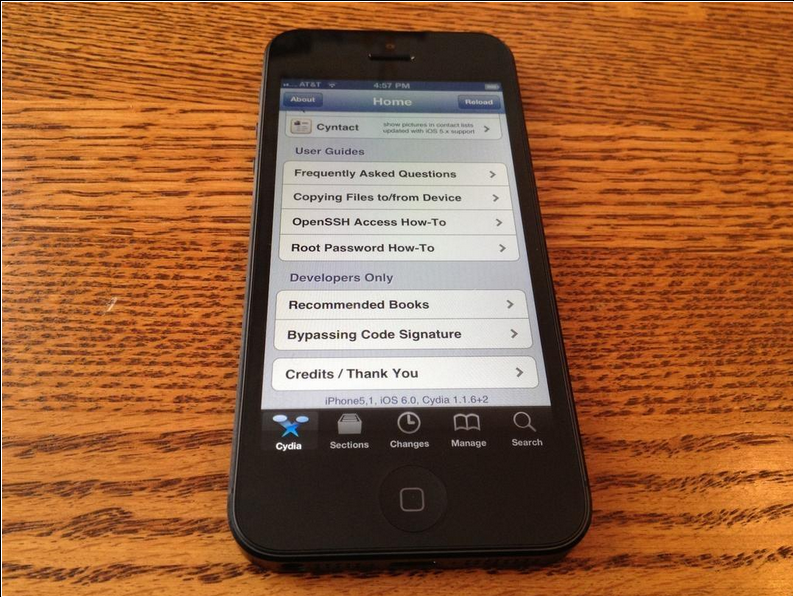
iPhone 5 already is jailbroken
Surely Apple is furious as not even a day after the iPhone 5 launched the device is jailbroken.
On his Twitter account Grant Paul posted a photo of an iPhone 5 with Cydia trumping on the screen, indicating that the device is jailbroken. But hold your horses, as the details are scarce at the moment and no date has been provided by the developer as to when or if the jailbreak will be publicly available.
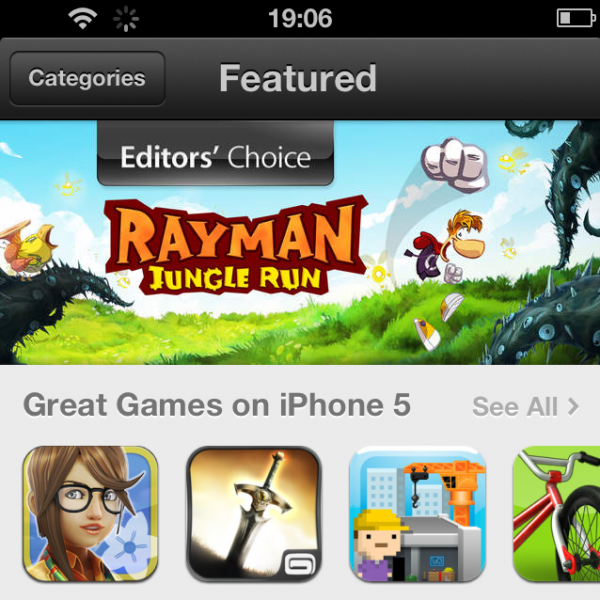
Six things that bug me about iOS 6
If you have a newish iOS device -- whether it’s iPhone, iPad or iPod touch -- there’s a good chance you have already upgraded to iOS 6 and are using it now. According to a study by Chitika some 15 percent of users with a compatible device upgraded in the first 24 hours, and that figure will likely have at least doubled by now, a couple of days later.
Apple says iOS 6 has 200 new features, and while some of them are very useful inclusions, such as Facebook integration throughout, and Shared Photo Streams, iOS 6 isn’t the dream operating system it could have been. In fact, it’s hard to imagine Steve Jobs would ever have allowed it to have been released if he were alive today. Here, in no particular order, are the areas where I feel Apple could have tried harder. Yes, based on my real-world experience, and regretful iOS 6 upgrade.

Will Apple Maps keep you from upgrading to iOS 6?
I've wanted to ask this question all day. But we needed an Apple Maps review first -- Wayne Williams delivered a good one -- and it needed a few hours live on the site. But I can refrain no longer. Will Apple Maps keep you from upgrading to iOS 6?
Considering the bad reaction to Apple's homegrown replacement for Google Maps, it's no idle question. About three quarters of US smartphone owners use location-based services, with mapping programs ranking among the highest, according to Pew Research. If you're among them, and actually would like to reach a destination using an Apple device, iOS 6 may not be for you. That is if the default mapping program is your primary one.
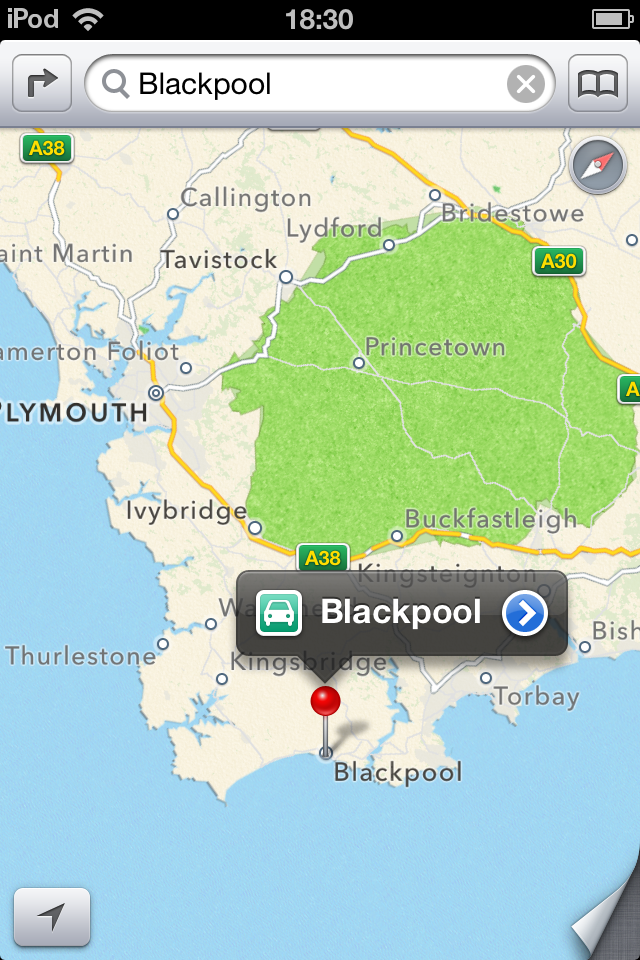
Apple iOS 6 Maps -- headed in the wrong direction [review]
I upgraded one of my Apple devices to iOS6 last night and the first thing I did, once finished setting it up, was to launch the new Maps component. This, as you’ll no doubt be aware, replaces the aging Google Maps app. I knew from other articles I’d read previously that Apple’s own mapping service wasn’t going to be as good as the old Google one. After all, Apple is new to this mapping lark, and the search giant has years of experience in the field. But I was prepared to give it the benefit of the doubt, and forgive any minor problems. After all, how bad could it be?
I started, as I am sure most people do, by typing in my address. Well, actually as I live in the United Kingdom I typed in my post code. Apple found my road, Prince’s Drive, but decided it was called Princess Drive. Not the most auspicious of starts.
